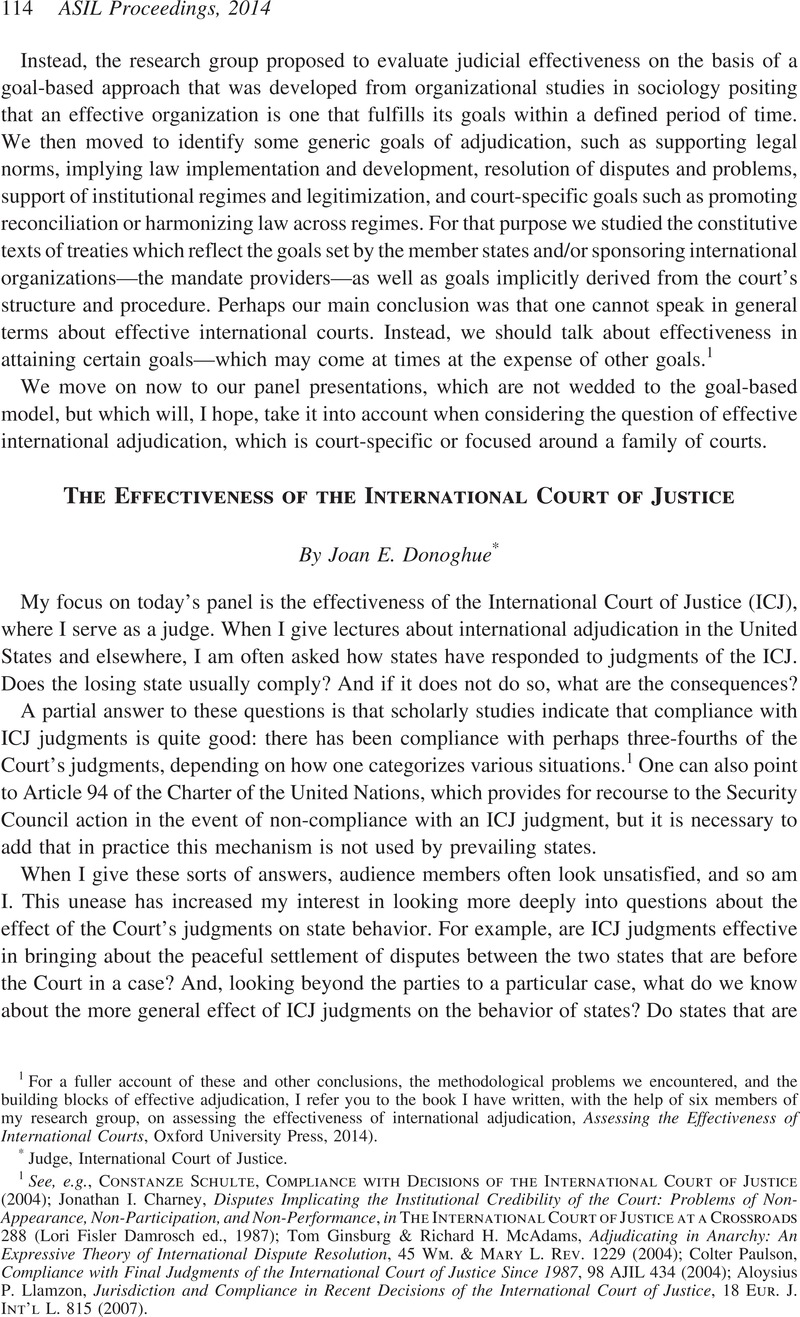No CrossRef data available.
Article contents
The Effectiveness of the International Court of Justice
Published online by Cambridge University Press: 20 January 2017
Abstract

- Type
- Effectiveness of International Adjudication: Assessing Functions and Performance
- Information
- Copyright
- Copyright © American Society of International Law 2015
References
1 See, e.g., Constanze Schulte, Compliance with Decisions of the International Court of Justice (2004); Charney, Jonathan I., Disputes Implicating the Institutional Credibility of the Court: Problems of Non-Appearance, Non-Participation, and Non-Performance, in The International Court of Justice at a Crossroads 288 (Damrosch, Lori Fisler ed., 1987)Google Scholar; Ginsburg, Tom & McAdams, Richard H., Adjudicating in Anarchy: An Expressive Theory of International Dispute Resolution, 45 Wm. & Mary L. Rev. 1229 (2004)Google Scholar; Paulson, Colter, Compliance with Final Judgments of the International Court of Justice Since 1987, 98 AJIL 434 (2004)CrossRefGoogle Scholar; Llamzon, Aloysius P., Jurisdiction and Compliance in Recent Decisions of the International Court of Justice, 18 Eur. J. Int’l L. 815 (2007)CrossRefGoogle Scholar.
2 Yuval Shany, Assessing the Effectiveness of International Courts (2014); Shany, Yuval, Assessing the Effectiveness of International Courts: A Goal-Based Approach, 106 AJIL, 225 (2012)CrossRefGoogle Scholar.
3 As Harold Koh has observed, the reason why nations obey international law “remains among the most perplexing questions in international relations.” Koh, Harold Hongju, Why Do Nations Obey International Law?, 106 Yale L.J. 2599, 2599 (1997)CrossRefGoogle Scholar. Koh’s essay offers his own views and provides a comprehensive overview of the vast literature related to this question. A more recent survey of the literature appears in Andrew Guzman, How International Law Works (2008), in which the author also offers his own ideas about how international law influences state behavior.


